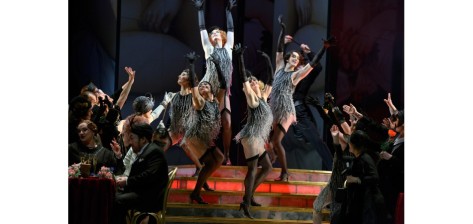At approximately the middle of the grant period, all of the Fulbright students in Germany are invited to the Berlin Seminar. This is an annual meeting focused on sharing experiences and discussing important issues in Europe. The German grantees (including students, professors, teaching assistants, performers, and journalists) are joined by Fulbrighters from other countries (I noticed strong presences from Scandanavia, Belgium, the Netherlands, Poland, Spain, and Italy) as well as German grantees who will soon leave for the States. We meet for seminars, discussion panels, and lots of eating and drinking.
The four-day seminar was very full, so I’m going to split my experiences into three blog posts: one focused on Judaism-related excursions, one focused on “networking” (the conference itself and the socializing surrounding it), and one focused on general tourism. This is the Judaism post.
On our second day in Berlin, we had the afternoon free. Some friends and I grabbed tickets for a hop-on-hop-off bus tour, and one place we stopped was the memorial to Jews killed in the Holocaust. It’s a strange monument—unmarked stone rectangles (which look rather like tombs) rise from the ground, increasing in height. They’re slightly angled, and walking among them is intentionally disorienting.
The following day, we visited the old Jewish district. This is full of Stolpersteine—brass “stumbling stones” marking where Jews who were killed in the Holocaust used to live. Many Germany cities have them, but not Munich. (A member of my synagogue is actually currently working to bring them to Munich.) They’re supposed to serve as a memorial to the dead and a reminder to the living, but I didn’t see that last part working: except for a few tourists, everyone I observed simply walked over them.

Stolpersteine in Berlin
Continue reading Fulbright Berlin Seminar, part one: Judaism →













